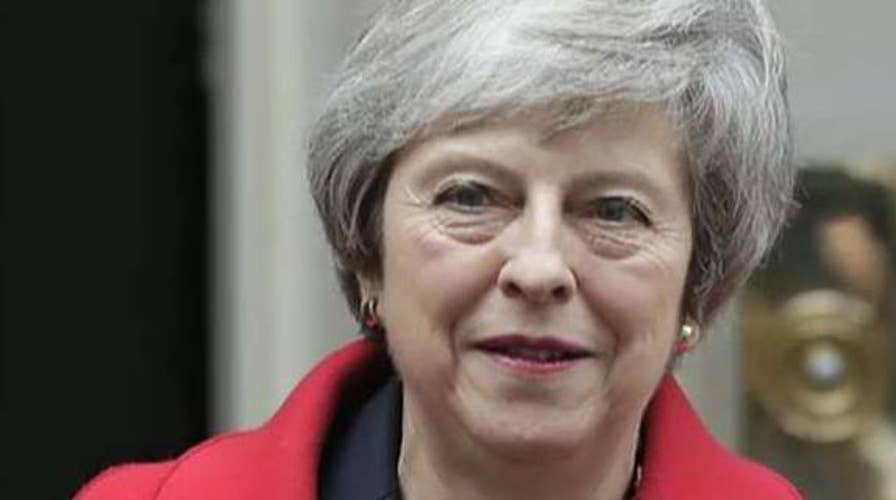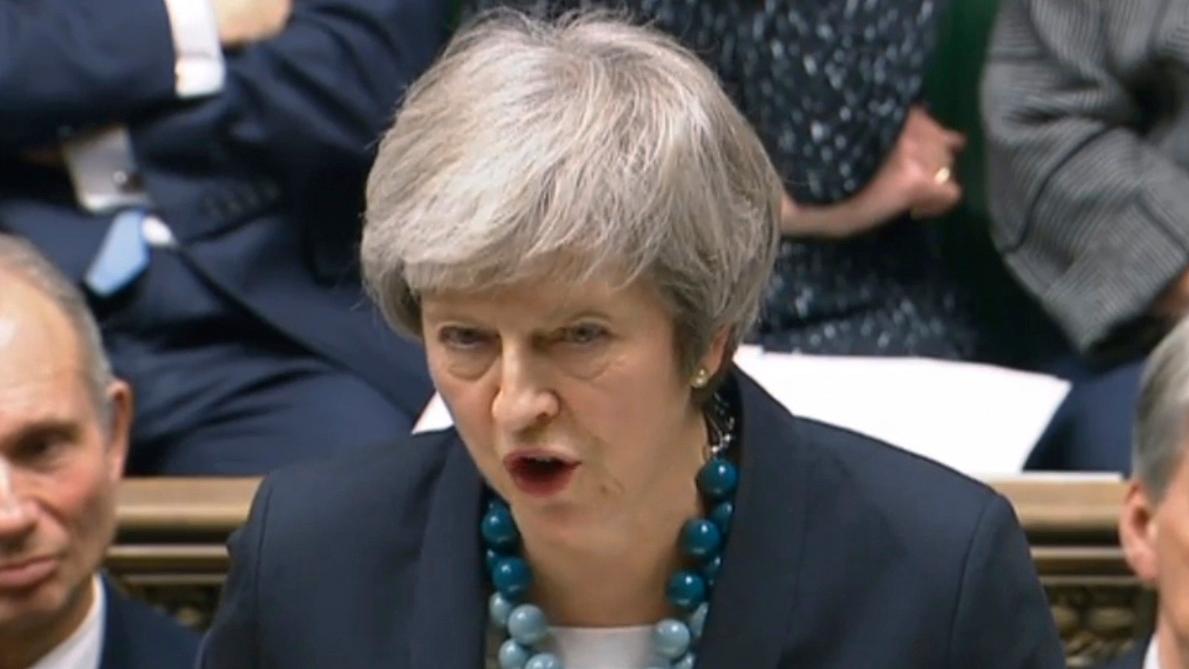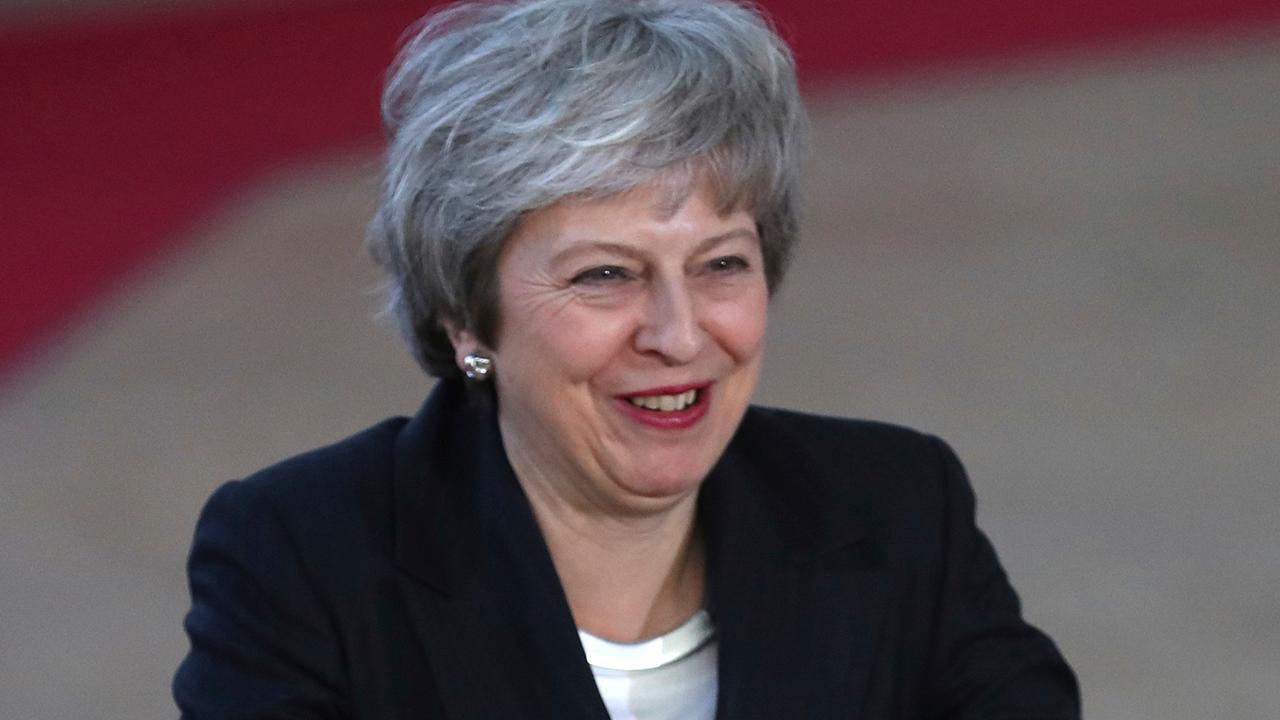British PM May survives no-confidence vote
Theresa May wins majority in Parliament vote; Greg Palkot reports from London.
BRUSSELS – British Prime Minister Theresa May implored European Union leaders Thursday to help her sell the Brexit divorce deal at home, only to be told that her proposals are not clear enough for the bloc to offer a helping hand now.
Instead, the EU said it would plow ahead with plans for a cliff-edge "no-deal" Brexit on March 29, with a raft of contingency measures to be presented next week.
May came to an EU summit in Brussels seeking support after a week that saw her Brexit deal pilloried in Parliament and her job threatened by lawmakers from her own party. She pleaded with the 27 other EU leaders to "hold nothing in reserve" in helping her sell the Brexit deal to hostile British lawmakers.
"There is a majority in my Parliament who want to leave with a deal, so with the right assurances this deal can be passed," May said, warning her EU counterparts that failure could mean Britain crashing out of the bloc without a deal, "with all the disruption that would bring."
EU officials, however, seemed exasperated at the lack of concrete new ideas from Britain. A proposal for encouraging wording offering to give the U.K. further assurances was left out of the leaders' final summit conclusions on Brexit.
"I do find it uncomfortable that there is an impression perhaps in the U.K. that it is for the EU to propose solutions," European Commission President Jean-Claude Juncker said at a news conference early Friday. "It is the UK leaving the EU. And I would have thought it was rather more up to the British government to tell us exactly what they want."
He said the British must "set out their expectations" within weeks if they want to make progress and avoid tumbling out of the EU without a deal.
May had earlier acknowledged that major progress was unlikely at the two-day summit, even as she tried to get tweaks to the withdrawal package that she could use to win over opponents — particularly pro-Brexit lawmakers whose loathing of the deal triggered a challenge to her leadership this week.
"I don't expect an immediate breakthrough, but what I do hope is that we can start work as quickly as possible on the assurances that are necessary," May said.
Her week from hell began Monday, when she scrapped a planned vote in Parliament on her Brexit divorce deal at the last minute to avoid a heavy defeat.
Anger at the move helped trigger a no-confidence vote among May's own Conservative lawmakers Wednesday. May won, but more than a third of her party's lawmakers voted against her in a sign of the unpopularity of her Brexit plan. To secure victory, she promised she would step down as Conservative leader before Britain's next national election, which is scheduled for 2022.
The 27 other EU nations are adamant there can be no substantive changes to the legally binding agreement on Britain's withdrawal from the bloc and declared that the deal was "not open for renegotiation."
"It is important to avoid any ambiguity," said French President Emmanuel Macron. "We can't renegotiate something which has been negotiated over several months."
The Brexit deal has many critics but one intractable issue — a legal guarantee designed to prevent physical border controls from being imposed between Northern Ireland, which is part of the U.K., and the Republic of Ireland, a member of the EU. Northern Ireland's 1998 peace accord depends on having an open, invisible border with Ireland.
A Brexit provision known as the backstop would keep the U.K. part of the EU customs union if the two sides couldn't agree on another way to avoid a hard border.
Pro-Brexit lawmakers strongly oppose the backstop, because it keeps Britain bound to EU trade rules and unable to leave without the bloc's consent. Pro-EU politicians consider it an unwieldy, inferior alternative to staying in the bloc.
May told EU leaders that to win U.K. backing for the deal, "we have to change the perception that the backstop could be a trap from which the U.K. could not escape."
But while Britain would like a guarantee that the backstop will be temporary, the EU insists there can be no fixed end date.
"If the backstop has an expiry date, if there is a unilateral exit clause, then it is not a backstop," said Irish Prime Minister Leo Varadkar. "That would be to render it inoperable."
The leaders gave May a few crumbs of comfort in their summit conclusions. As a sign of goodwill, the EU said preparations for trade relationships would start as soon as possible after British and EU legislatures approved the deal.
They promised to work for speedy new trade deal with Britain to avoid triggering the backstop, and underscored that the measure was intended to be temporary, saying it "would only be in place for as long as strictly necessary."
But May remains a weakened leader atop a government and a Parliament whose members are deeply and damagingly divided over Brexit.
Juncker said it sometimes was tough to fathom his own state of mind but added: "It is even harder to understand the state of mind of the British MPs. "



